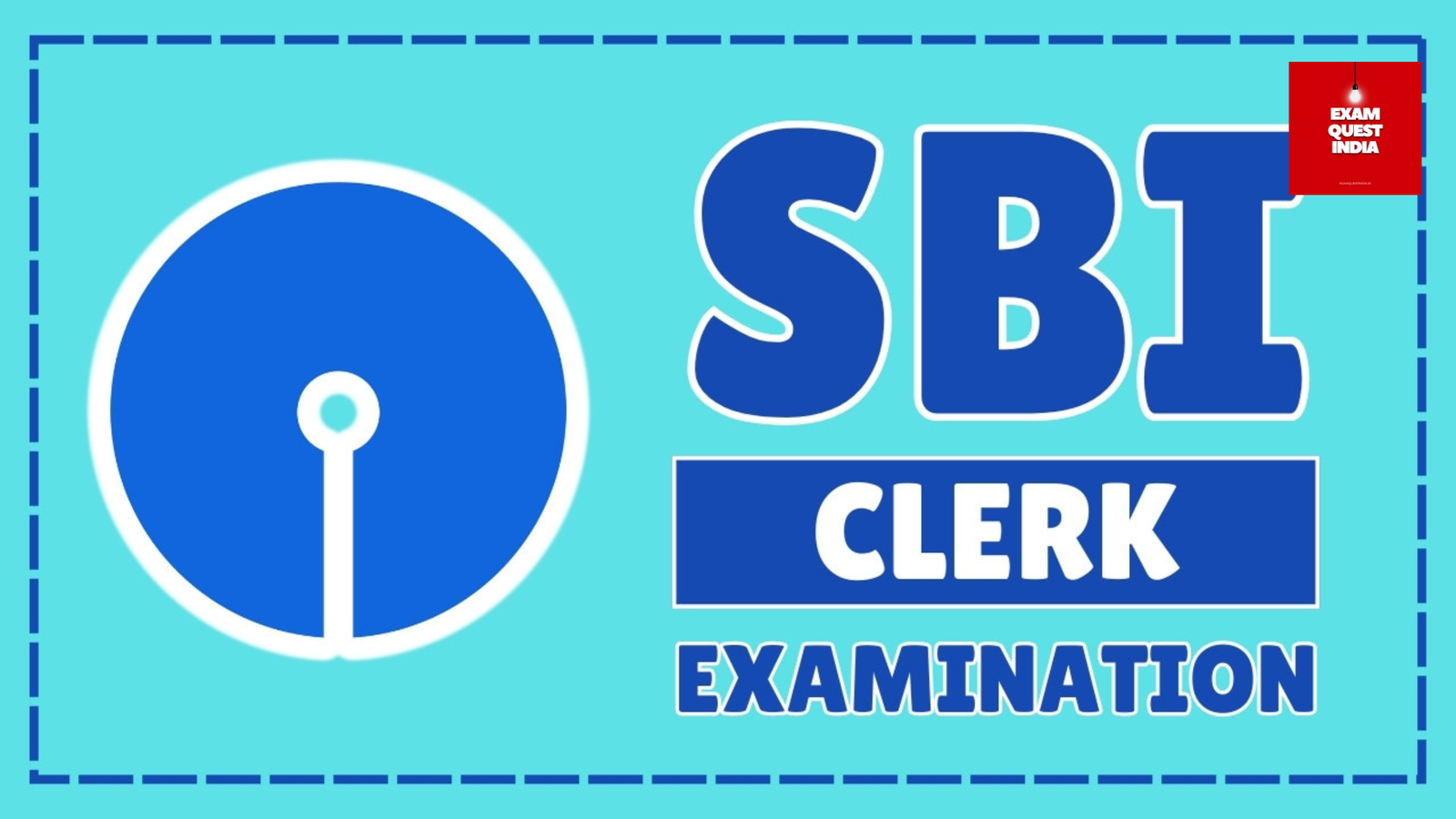
Is 3 Months Enough to Crack the SBI Clerk Exam?
The State Bank of India (SBI) Clerk exam is a highly competitive exam, attracting lakhs of aspirants every year. A common question among these aspirants is: “Is three months enough to prepare for the SBI Clerk exam?” The answer, while not a simple yes or no, leans towards a definite “yes” with the right approach, dedication, and strategic planning. This article will delve deep into this question, providing a comprehensive guide to help you determine if three months is sufficient for your preparation and how to maximize your chances of success within this timeframe.
Table of Contents
Understanding the SBI Clerk Exam Structure
Before diving into preparation strategies, it’s crucial to understand the SBI Clerk exam pattern. The selection process generally involves two main stages:
- Preliminary Examination (Prelims): This is a qualifying exam designed to filter candidates for the main examination. It consists of three sections:
- English Language
- Numerical Ability
- Reasoning Ability
- Main Examination (Mains): This exam is more comprehensive and carries more weight in the final selection. It typically includes:
- General Awareness, Financial Awareness
- General English
- Quantitative Aptitude
- Reasoning Ability & Computer Aptitude
Sometimes, there might be a Language Proficiency Test (LPT) after the Mains exam to assess the candidate’s proficiency in the official language of the state they’ve applied from.
Analyzing the Competition and Success Rate
The SBI Clerk exam is known for its high competition. Lakhs of candidates apply for a limited number of vacancies. While exact figures vary each year, it’s safe to say that the success rate is quite low. This underscores the importance of a well-structured and focused preparation strategy. Unfortunately, publicly available, precise data on the success rate specifically tied to preparation time (e.g., how many candidates crack the exam with exactly 3 months of preparation) is scarce. However, anecdotal evidence and success stories suggest that dedicated preparation for 2-4 months can be sufficient.
Is 3 Months Enough? A Personalized Perspective
Whether three months is enough for you depends on several factors:
- Your Current Knowledge Level: If you have a strong foundation in the basic concepts of mathematics, English, and reasoning, three months might be sufficient for focused revision and practice. However, if you’re starting from scratch, you might need more time to grasp the fundamentals.
- Your Learning Capacity and Speed: Some individuals learn and retain information faster than others. If you’re a quick learner, you can cover more ground in a shorter period.
- Your Dedication and Time Commitment: Consistent and dedicated study is crucial. If you can dedicate a significant number of hours each day to preparation, three months can be enough. However, if you have limited time, you might need to adjust your strategy or extend your preparation period.
- Your Exam Strategy: A well-defined study plan, effective time management, and regular mock tests are essential for success. If you have a clear strategy in place, you can maximize your preparation within three months.
Crafting a 3-Month Study Plan: A Week-by-Week Breakdown
A structured study plan is the cornerstone of effective preparation. Here’s a sample 3-month plan, keeping in mind that this is a template and you should adjust it based on your individual needs and strengths:
Month 1: Building the Foundation (Weeks 1-4)
- Focus: Core concepts of Quantitative Aptitude, Reasoning Ability, and English Language.
- Activities:
- Daily study of fundamental concepts from standard textbooks or online resources.
- Practice basic problems and exercises to solidify your understanding.
- Start reading newspapers (The Hindu, Indian Express) and books to improve reading comprehension and vocabulary.
- Begin practicing basic grammar rules.
Month 2: Strengthening Concepts and Practicing (Weeks 5-8)
- Focus: Improving speed and accuracy in all sections. Introduction to General Awareness.
- Activities:
- Regular practice of sectional quizzes and mock tests.
- Analyze your performance in mock tests and identify weak areas.
- Devote more time to practicing challenging questions.
- Start following current affairs through reliable sources (e.g., The Hindu, PIB, reputable online GK platforms).
- Begin preparing for the General Awareness section, focusing on recent events, banking and financial news.
Month 3: Revision, Mock Tests, and Strategy (Weeks 9-12)
- Focus: Intensive revision, full-length mock tests, and exam strategy refinement.
- Activities:
- Solve previous year’s question papers to understand the exam pattern and difficulty level.
- Take full-length mock tests regularly and analyze your performance thoroughly.
- Focus on improving time management and accuracy.
- Revise all important concepts and formulas.
- Develop a personalized exam-taking strategy.
- Consistent revision of current affairs and static GK.
Section-Wise Preparation Tips:
- Quantitative Aptitude: Focus on understanding the underlying concepts and practicing different types of problems. Speed and accuracy are crucial.
- Reasoning Ability: Practice various types of reasoning questions to improve your analytical and logical thinking skills.
- English Language: Improve your reading comprehension, grammar, and vocabulary. Regular reading and practice are key.
- General Awareness: Stay updated on current events, especially related to banking, finance, and the Indian economy. Read newspapers, follow reputable news websites, and utilize GK compendiums.
Helpful Information
- Importance of Mock Tests: Mock tests are indispensable for SBI Clerk exam preparation. They simulate the actual exam environment and help you assess your strengths and weaknesses. Regular mock tests also improve your time management skills and reduce exam anxiety.
- Analyzing Previous Year’s Papers: Solving previous year’s papers is crucial for understanding the exam pattern, difficulty level, and types of questions asked. This practice will also help you identify important topics and focus your preparation accordingly.
- Time Management: Effective time management is crucial during the exam. Practice solving questions within the allotted time and develop a strategy for tackling different sections.
- Accuracy vs. Speed: While speed is important, accuracy is paramount. Avoid making careless mistakes and focus on solving questions correctly.
- Staying Motivated: Maintaining motivation throughout the preparation process is challenging but essential. Set realistic goals, track your progress, and celebrate small achievements.
- Utilizing Online Resources: Numerous online resources, including study materials, mock tests, and practice questions, are available. Utilize these resources effectively to supplement your preparation.
- Current Affairs Data Points (Illustrative): Keep track of key economic indicators (GDP growth rate, inflation rate, repo rate), major government schemes, international events, and banking/finance related news. For example, be aware of the latest RBI policies, recent mergers and acquisitions in the banking sector, and important economic reports. (Note: These are just examples; the specific data points you need to focus on will change over time).
Conclusion:
Cracking the SBI Clerk exam in three months is definitely achievable with the right approach and dedicated effort. Focus on building a strong foundation, practicing regularly, analyzing your performance, and staying motivated. Remember that this article provides a general guideline; personalize your study plan based on your individual needs and strengths. With consistent effort and a strategic approach, you can significantly increase your chances of success. Good luck!
FAQs
Q: What are the best resources for SBI Clerk exam preparation?
A: Good resources include standard textbooks for each subject (e.g., R.S. Aggarwal for Quantitative Aptitude, Arihant publications for Reasoning), online learning platforms, mock test series (e.g., Oliveboard, Adda247, Testbook), and current affairs websites/magazines. Choosing resources that suit your learning style is crucial.
Q: How important is it to solve previous year’s question papers?
A: Solving previous year’s papers is extremely important. It helps you understand the exam pattern, the types of questions asked, the difficulty level, and the marking scheme. It also helps you identify your weak areas and improve your time management skills.
Q: What is the ideal time to start preparing for the SBI Clerk exam?
A: The ideal time depends on your current knowledge level and learning pace. Generally, starting your preparation 2-6 months before the exam gives you ample time to cover the syllabus, practice, and revise. If you have a strong foundation, even 2-3 months of focused preparation can be sufficient.
Q: How can I improve my speed and accuracy in the exam?
A: Speed and accuracy come with consistent practice. Solve a variety of questions regularly, focusing on understanding the concepts rather than rote learning. Time yourself while practicing and analyze your mistakes to improve your accuracy. Mock tests are crucial for improving both speed and accuracy.
Q: How can I stay motivated during my preparation?
A: Staying motivated can be challenging. Set realistic goals, track your progress, celebrate small achievements, join study groups, and take breaks when needed. Remember why you want to crack the exam and visualize your success.
Q: What are some important topics in Quantitative Aptitude for the SBI Clerk exam?
A: Important topics include Number Series, Simplification, Data Interpretation, Quadratic Equations, Time and Work, Time and Distance, Percentage, Profit & Loss, Ratio & Proportion, and Average.
Q: How can I improve my reading comprehension skills for the English Language section?
A: Read regularly from diverse sources like newspapers, magazines, and books. Focus on understanding the main idea, tone, and author’s purpose. Practice solving reading comprehension passages and analyze your mistakes.
Q: What are the best ways to prepare for the General Awareness section?
A: Stay updated on current events by reading newspapers, following reputable news websites, and watching news channels. Focus on news related to banking, finance, the Indian economy, government schemes, and international events. Utilize GK compendiums and online resources for static GK.
Q: Are there any specific tips for preparing for the Reasoning Ability section?
A: Practice different types of reasoning questions regularly, such as puzzles, seating arrangements, syllogisms, blood relations, and coding-decoding. Focus on developing your logical thinking and analytical skills.
Q: What should be my strategy for attempting the SBI Clerk exam?
A: Develop a personalized exam-taking strategy based on your strengths and weaknesses. Prioritize sections you are confident in and manage your time effectively. Don’t spend too much time on a single question. Attempt questions with accuracy and avoid negative marking.
Q: How can I manage exam stress?
A: Proper preparation, adequate sleep, and a healthy diet are essential for managing exam stress. Practice relaxation techniques like deep breathing and meditation. Stay positive and confident.
Q: What should I do in the last few days before the exam?
A: Focus on revision and take mock tests. Avoid learning new topics at the last minute. Get enough rest and stay healthy. Review important formulas and concepts.
Discover more from ExamQuestIndia: The Best Exam Prep Platform in India
Subscribe to get the latest posts sent to your email.





